Feasibility Studies
Feasibility studies are crucial in railway infrastructure projects as they assess the viability, challenges, and potential benefits before implementation. These studies provide a comprehensive evaluation of technical, financial, environmental, and operational aspects to support informed decision-making.
01.
Objectives of Feasibility Studies
- To determine the technical and financial feasibility of a railway project.
- To identify potential risks and mitigation strategies.
- To evaluate economic, social, and environmental impacts.
- To provide decision-makers with data-driven recommendations for project approval.
02.
Key Components of Feasibility Studies
1. Technical Feasibility
- Evaluates railway alignment, track design, and infrastructure requirements.
- Assesses signaling, telecommunications, power supply, and rolling stock needs.
- Analyzes construction challenges such as terrain, soil conditions, and weather.
2. Economic and Financial Feasibility
- Estimates project costs, including land acquisition, construction, and operations.
- Analyzes revenue potential from passenger fares, freight charges, and government subsidies.
- Conducts cost-benefit analysis (CBA) and return on investment (ROI) evaluation.
3. Environmental Feasibility
- Assesses the project's impact on air quality, noise levels, and water resources.
- Evaluates land use changes, deforestation, and wildlife conservation concerns.
- Ensures compliance with environmental regulations and sustainability goals.
03.
Methodology of Feasibility Studies
- Data Collection: Gathering existing reports, maps, and technical data.
- Field Surveys: Conducting on-site assessments of terrain, infrastructure, and environmental conditions.
- Stakeholder Consultations: Engaging government authorities, railway operators, and local communities.
- Modeling and Simulation: Using software tools for cost estimation, demand forecasting, and risk analysis.
04.
Importance of Feasibility Studies
- Reduces Risks: Identifies potential challenges early to avoid costly mistakes.
- Optimizes Resources: Ensures efficient allocation of budget, manpower, and technology.
- Supports Investment Decisions: Provides a clear business case for funding and approvals.
- Ensures Sustainability: Aligns the project with environmental and social responsibility standards.
Interested in our railway solutions? Contact us now
Join us for cutting-edge railway signaling and telecommunications solutions. We deliver safe, efficient, and innovative systems tailored to your needs. Start your project today and revolutionize railway operations with us!

